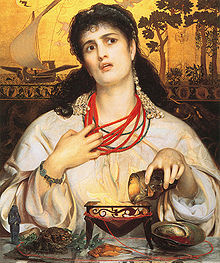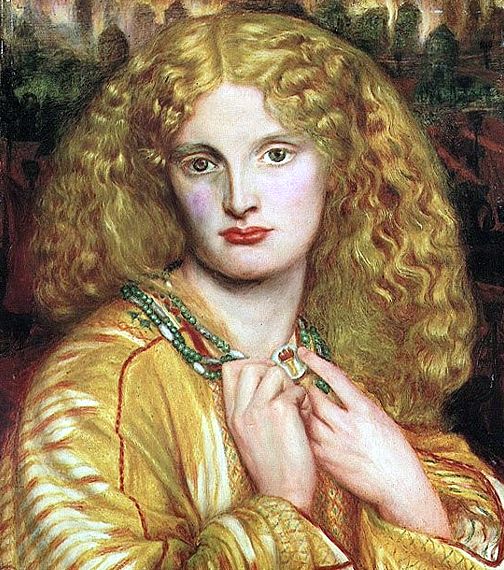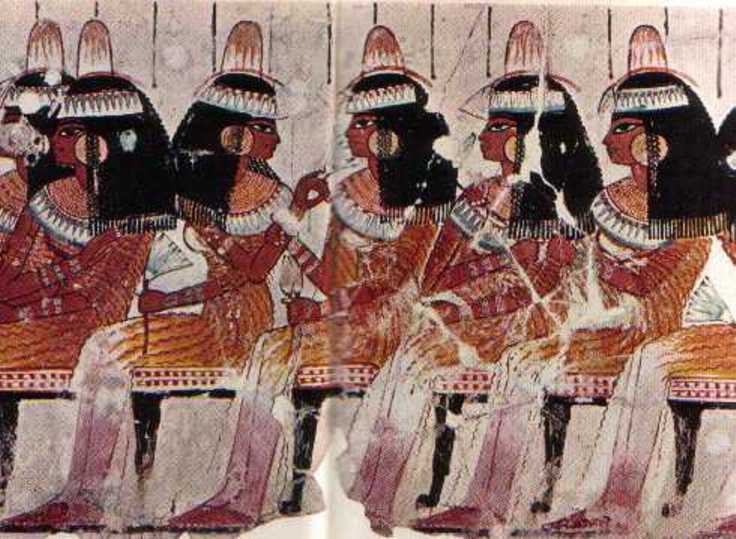Gilgamesh fights with the guardian of the cedar forest, Humbaba.
So for my first blog post, I decided to start from the beginning. And the beginning of this journey happens to be the Mesopotamian epic of Gilgamesh in the very first world lit anthology. Gilgamesh is the story of an ancient king of Uruk who is two-thirds god and one-third human. He becomes exceptionally arrogant and abusive of his power and so the gods send someone to challenge him and put him in his place, Enkidu. Eventually Enkidu and Gilgamesh fight, Gilgamesh wins and the two become fast friends. The two go off on an epic journey to slay the Humbaba, guardian of a cedar forest where the gods dwell. After they succeed the goddess Ishtar proposes to Gilgamesh, but Gilgamesh refuses Ishtar's offer. Ishtar in her anger sends a Bull of Heaven to terrorize Uruk. The bull, however, is no match for Gilgamesh and Enkidu. Enkidu is then offed by the gods for interfering in their punishment of Gilgamesh and Gilgamesh enters into a state of intense mourning and contemplation of his own mortality. Gilgamesh then goes and tracks down the one man who has achieved immortality, Utnapishtam, by venturing into the domain of the gods. He finds Utnapishtam and hears the story of the Great Flood and how Utnapishtam became immortal after surviving it on an ark. Utnapishtam then offers Gilgamesh immortality if Gilgamesh can stay awake for six days and seven nights, a task which Gilgamesh fails. Disappointed by his failure, Gilgamesh returns to Uruk to live out the rest of his life.
I've always been interested in mythology, but surprisingly enough ancient myths from places not called Greece did not feature heavily in my schooling (okay not surprising at all). That's not to say this isn't my first exposure to Gilgamesh. It was either in middle school when studying Mesopotamian culture (although I'm not convinced the harlot would have made this an appropriate work for middle schoolers) or as a freshman in World History in college. It's enjoyable reading a story about divinities that aren't called Zeus or Apollo.
As far as the actual story goes, it's pretty interesting. These are the same types of gods the Greeks (and Romans) worshiped vengeful and overprotective of their turf while meddling in the affairs of mortals (almost exclusively to the disadvantage of the mortals). It's particularly interesting to see another take on the Great Flood story. And it's touching to hear of Gilgamesh's distress at the loss of his friend. It almost makes you wonder, was this the tale of the first tragic-ending bromance in recorded history?
Gilgamesh and Enkidu-Totally in a Bromantic Relationship of the Highest Order
Anyways, this is a great story. It deserves a lot more attention than it receives in a lot of cases. It was kind of the myth that history forgot. It wasn't carried on by the Western tradtion like much of the Greco-Roman mythologies and it was essentially lost until ruins with plaques discussing it were discovered. It turns out it has one other famous first, it's the first story that promises immortality to an individual afraid of disappearing into oblivion by telling them to do great stuff.


.jpg)










